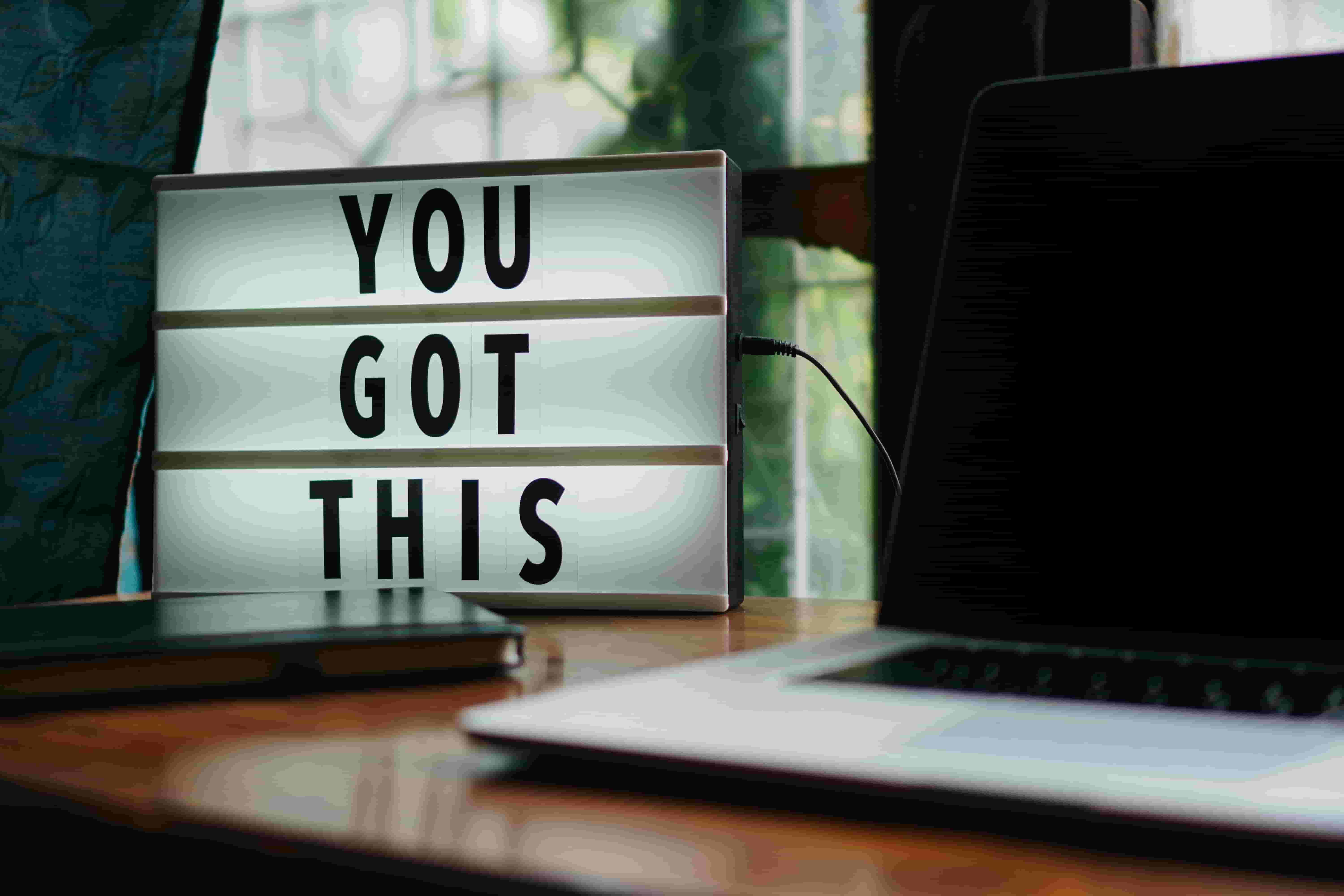
Have you ever felt the pressure to only show your best side on Insta, Snapchat, or Facebook? Do you find yourself questioning if the effort will really be worth it ahead of big celebrations, birthdays, and holidays? If so, it could be a sign that you have enjoyment anxiety…
We’ve all heard the term ‘anxiety’ and, if we’re being honest, we each think we have a pretty good idea of what anxiety is. Used to describe feelings of worry, fear and unease that our bodies feel when our ‘fight or flight’ response kicks in, most of us have felt anxiety at one point or another in our lives; be it surrounding exams, a new job, moving house, or making a big change.
(Almost) nobody likes big changes or that insurmountable feeling of pressure that often leads to a sense of anxiety and overwhelm, but we can at least understand it when these big, scary events cause us to feel anxious.
But what about when it comes to events that should be enjoyable? Going on vacation, celebrating the holidays, birthdays, sharing with friends and family on social media – aren’t these all supposed to be activities that cause joy in our lives, not anxiety? How are we supposed to justify our feelings of fear and worry, when we know they are stemming from something we are ‘supposed’ to be enjoying?

What is enjoyment anxiety?
More and more of us are reporting a need to make our free time count. On average, us full-time workers in the UK put in around 42.5 hours each week. For most of us, we have just two precious days each week to cram all of those things we wish we had the time for between work, household chores, and lengthy commutes. With full-time workers entitled to just 28 paid days vacation days each year (many lost to bank holidays, company shutdown over the holidays, and other various ‘business need’ days), it’s no wonder we’re feeling the pressure to make every moment we are away from our day-to-day routine count.
When our work/life pressures are thrown out of balance, we can begin to feel additional pressure and anxiety around how we are using our time. When worries over emails, meetings, deadlines, workplace politics, and the whole jumbled mess of anxiety-inducing situations that a heavy workload, changing expectations, and burnout can bring start encroaching on our precious time away from work, it can start to feel like our anxiety is transferring and spreading to other areas of our lives.
On average, we spend 2 hours 15 minutes on social media each day, losing hours to scrolling. While this can be a relaxing way to unwind for some, for others, it can lead to a Fear Of Missing Out (FOMO), pressure to only present their best possible self for others to see on social media, and a need to keep up with the excitement and achievements of friends and loves ones.

If you find yourself questioning if activities you know you enjoy are worth it, or if the stress and pressure of doing something outside of your routine makes you reconsider your plans, it could be a sign that you are experiencing enjoyment anxiety.
How to stop enjoyment anxiety and stress from ruining special occasions
If you’re worried enjoyment anxiety may be affecting you, there are several small changes you can make to help shift your perspective, take control of how you’re feeling, and relearn how to both enjoy the moment and look forward to future events without an overwhelming sense of dread and anxiety.
1. Learn to recognise the signs of enjoyment anxiety
Just as each of us will have a different experience with anxiety, so too do we have different signs and symptoms to look out for. The emotional and physical sensations we experience when we have anxiety can include:
- fast or short breathing
- dizziness or headaches
- trouble sleeping or difficulty concentrating
- a sense of dread or being on-edge
- panic attacks
- feeling irritable or short-tempered
Next time you have a big event such as a family birthday or holiday coming up, try and track how you are feeling in the run-up to the big day. Do you notice any patterns or recurring symptoms, such as trouble sleeping, or a persistent low mood? Recognising signs of anxiety can be the first step towards addressing how you are feeling, identifying underlying causes of your anxiety, and helping you to avoid negative impacts on your wellbeing in the future.
As Counsellor Greg Savva explains, learning to spot the signs of anxiety can be a huge help.
“Anxiety is the human response to stress. It acts as a type of excessive worry or concern about a real or perceived threat. As a result, we feel a number of distressing symptoms in our bodily sensations, feelings and thoughts.
“Anxiety causes us to experience a great deal more emotional intensity and act in overly dramatic ways than the situation seems to warrant. The worst type of anxiety is often as a response to ‘uncertainty’, where [we] feel the world and those around [us] are completely out of control.
“Once you have learned the sensations, emotions, thoughts and behaviours that accompany anxiety you can learn to tolerate anxiety and respond to it with self-awareness, using different techniques to help you relieve the symptoms.”
2. Forget ‘should’ and ‘supposed to’ and ask yourself: what do I really enjoy?
Our emphasis on succeeding at work and in our careers can leave many of us at a loss to what we enjoy outside of our working lives. If you struggle with your work/life balance, you may find yourself taking a more passive role when it comes to planning your free time, letting friends and family take the lead. This can lead to a sense of disappointment if events don’t quite live up to your expectations.
Taking time to rediscover yourself and what you enjoy can be a key part of ditching your anxiety around what you are ‘supposed’ to enjoy, and finding what brings joy to your life.
If, however, you struggle to recognise what you are passionate about or what truly brings you job satisfaction, it could be worth considering speaking with a life coach. Working with a coach can help you to develop your hobbies, improve your confidence and self-esteem, rebalance your work/life priorities, and even improve your health and wellbeing. There’s no shame in admitting when you need help with something – even if that something is as ‘simple’ as what you enjoy.

3. Set healthy boundaries
Setting boundaries at both home and work can help to support your mental health and wellbeing, better manage your workload – and our (and other people’s) expectations. Learning to say no at work is one thing, but can we really tell family and friends that, actually, we can’t make that ‘fun’ night out because we need to stay in and take some quality me-time to rest?
Boundaries can help us to stop more anxiety-inducing elements bleeding over from one area of our lives into another. Life Coach Helen Snape explains:
“In short, boundaries are what we communicate to others about how we want to be treated. These can be physical, emotional, time, or otherwise. For example, you might have a boundary about how much time you want to spend with your partner’s family, or on hobbies, or you might have a boundary about how much you spend when out with friends.
“Communicate your boundaries. Use simple, direct language. There’s no need to defend or over-explain your boundaries – if questioned, just repeat them, [and] don’t give in. If you do, you are inviting others to ignore your needs.
“Creating healthy boundaries can seem daunting. Give yourself time and permission to learn, make mistakes, and try again. You are creating a better future for yourself and your relationships. Healthy boundaries let us know where we stand, and that is a loving and safe place to be.”
If you work from home, setting boundaries and finding a healthy balance can be tricky. Learning how to switch off, and creating physical boundaries such as having a dedicated workspace can help to create a clearer sense of balance at home.

If you find yourself struggling to set boundaries when it comes to helping friends, family, or others online, these tips from writer Fiona Thomas can help you to take a step back and consider the importance of setting boundaries when helping others.
4. Avoid disaster thinking; focus on the moment
When anxiety begins to loom, it can become a habit for your mind to immediately go to the worst-case scenario. While there’s nothing wrong for preparing for every eventuality, automatic negative thoughts can lead us to dwell on things we are unable to change, stopping us from moving forward.
If you struggle with negative or disaster thinking, challenging your thoughts can help you to feel more grounded. At times, we can overthink situations, further darkening our thoughts and making us feel worse. Practising mindfulness can help you to feel more connected, alleviate stress, and be present in the moment. As television and radio presenter Sarah Powell explains, mindfulness can be truly lifechanging.
“Mindfulness was quite alien to me when I arrived to do a workshop day about it. What I took away was putting distance between myself and my thoughts, and not being in a constant cycle of worries. I could just be, just exist from moment to moment.
“I now meditate for 10 minutes every day, just sitting somewhere and noticing my breath and my body. The time might seem like a big commitment and at first, it might feel strange or odd. Self-care is usually at the bottom of our list behind work, family, food, etc. Yet I always feel better post-meditating. I’m calmer, happier, and have more energy.”
5. Rediscover the joy of authenticity
‘Be true to yourself’ may sound like a budget motivational poster but research suggests that, when it comes to being happier and more satisfied with our lives, authenticity is key. The truer we are to ourselves, the better we can recognise and acknowledge what we enjoy, what interests us, what truly makes us happy and gives us that sense of satisfaction.

Embracing who we are and what we enjoy can also be the first step towards overcoming difficulties with change (and disruptions to your routine). As counsellor Michelle Brown explains, “Half the battle with change is accepting who you are in the first place. Not offering up a false facade to the world but being authentically you. Not comparing yourself to others or changing your ideals and beliefs to fit in and to please them.
“Accept you you are, stop resisting it. Embrace it. Dare to be yourself and watch opportunities unfold naturally because you are present, positive, authentic and focussed, listening to what matters to you and what you really want.”
6. Practice gratitude
Whether you experience a slow, growing sense of anxiety or a sudden overwhelming hit, it can be tough to acknowledge your change in mood. Denying how you are feeling or trying to mask it can be an automatic reaction – especially if you are feeling anxiety around something that others are looking forward to, as you don’t want to risk ‘ruining’ the mood.
Setting aside just a few minutes each day for reflection on what you are grateful for can have a surprising effect. Try writing it down or saying it out loud – the method doesn’t matter, as long as you are taking the time to reflect and giving yourself space to consider the positives (however big or small they may be).
7. Embrace affirmations
Can positive statements have that much of an impact? According to NLP practitioner Nicola Rae-Wickham, they really can. Typically, we subconsciously use negative affirmations such as “I’m not good enough” or “I can’t…” which can lead your subconscious to see your goal as this negative outcome. Positive affirmations can help to empower and support you towards achieving your goals, addressing negative feelings, and creating a more positive outlook.
“Language is one of the ways our mind is influenced and we can use it to help us get the results we want. It is this information that impacts our behaviour. Affirmations present your mind with an alternative narrative which seeps in on both an unconscious and conscious level. You need to repeat the affirmation in your mind, out loud or in writing regularly, and you have to try and evoke the feeling as you do it.
“I see positive affirmations like mini decisions to change the way you speak to yourself, a decision to focus on empowering self-talk, and a decision to reclaim your self-worth.”

Therapist Noel Bell MA, PG Dip Psych, UKCP, explains how positive self-talk (affirmations) can help relieve anxiety.
“Positive self-talk is something that can be learned and which can be extremely useful in managing the mental and physical symptoms of anxiety. Worrying thoughts can make us feel physically anxious and can lead to more and more worry. Positive self-talk is a coping strategy that can potentially transform your way of being in the world and can break this vicious cycle whereby negative thoughts lead to more physical symptoms.”
It's about challenging the rationality of your thoughts, and rewriting negative thoughts to make them more positive. Noel goes on, “It could prove helpful to question your thoughts. The simple process of writing down your fears and worries can often help to provide some perspective on your thoughts.”
8. Open the way for meaningful conversations
According to research, over 60% of us feel like a weight has been lifted after talking about mental health issues (such as anxiety). Talking can feel tough, but it can open the way up for difficult and meaningful conversations between ourselves and those who mean the most to us.
Opening up can feel particularly challenging when we are worried about bringing others’ moods down, or ‘spoiling’ special occasions, but often what feels obvious to us isn’t so clear from the outside. Picking a comfortable location and a good time (e.g. when you are both free to catch up over coffee, rather than just before you are due to run an errand or after a stressful day at work) can help create an environment where you can open up a little more easily.

If you’re unsure of how to bring up the topic, or have trouble talking about how you feel, counsellor Jacqueline Karaca M.Sc. Hons Counselling Psych, MBACP Reg, shares her tips for preparing for tricky conversations.
“Ask the person for time to be set aside when you can talk alone. Get your thoughts in order on paper, write down the things you want to say, how you want to say things and the order you want to say them in.
“Practise the conversation either in your head or out loud, [and] consider the response you might want.”
If you are struggling with the thought of speaking with a friend or loved one, it could be worth considering talking with an expert. Speaking with a counsellor or a coach can offer an outside perspective, help you to think through issues that may be causing you anxiety, and work out strategies to manage these feelings in a way that best works for you.
Discover more about how a counsellor can help with anxiety and find an anxiety counsellor near you, or explore how health coaching could help you.
9. Treat yourself with kindness
Give yourself the time to process how you are feeling without judgement or guilt. Whatever you are feeling – positive or negative – is valid. Denying or trying to ignore your anxiety only leads to an ongoing cycle of guilt, shame, and further anxiety about being anxious. Instead, try treating yourself how you would treat a close friend or loved one who was in your situation. Be kind, be patient, be gentle. How you’re feeling now isn’t going to last forever; it’s ok to give yourself time.
How we treat ourselves can be just a small part of how we overall cultivate kindness to help throughout our relationships. Counsellor Fe Robinson UKCP explains,
“The key to being kind is to soften how we treat ourselves. Instead of the fierceness, it is so easy to fall into, talk in a nurturing tone inside. Be patient with yourself. Recognise and praise yourself for your efforts, and forgive yourself for your shortcomings.
“This is not about indulgence or letting yourself off the hook. It’s about honesty and balance, really seeing what is happening and looking without judgement. We are all human, expecting perfection is likely to lead to disappointment.”
It’s time to start treating yourself with a little more kindness. Ask yourself: what small act of kindness can I do for myself today?

